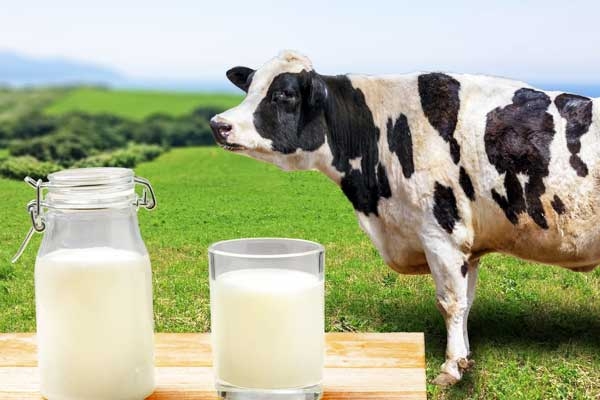
(Image source from: Canva.com)
Does the protein found in cow's milk increase the risk of type 1 diabetes, particularly in very young kids? The worry is that for some individuals, the immune system might respond to specific cow milk proteins and wrongly attack the insulin-producing cells in the body. However, research is not definitive. Some studies suggest there might be a connection, while others offer minimal evidence. How does cow's milk protein impact the body? Cow's milk contains two primary proteins: casein and whey. These are generally safe for most people. Yet, for those with certain genetic vulnerabilities or sensitive immune responses, these proteins may trigger an immune response. In type 1 diabetes, the immune system targets and damages the cells that produce insulin in the pancreas. Various factors can contribute to this condition, such as family history, environmental influences, or viral illnesses. Some specialists believe that introducing cow's milk protein to infants too soon might act as a trigger for a small percentage of children.
What should you remember? The potential connection is particularly relevant for infants who are given cow's milk or formulas with cow's milk protein before their digestive and immune systems are fully developed. This is why breastfeeding is often suggested for the initial six months, as it could help reduce certain health risks and strengthen immunity. For older kids and adults, consuming milk in moderation is usually not associated with this issue unless they already have a milk allergy or intolerance. How much is excessive? There is no specific “danger point” for cow's milk protein; it varies from person to person. For healthy adults, having one or two glasses of milk per day (or an equivalent amount in yogurt or cheese) is typically acceptable. Consuming excessive amounts, such as several large glasses daily, won’t cause diabetes but might result in other issues like extra calorie intake, stomach upset, or too much saturated fat in one’s diet. Cow's milk remains a nutritious option for most children and adults, providing calcium, protein, vitamins, and various nutrients. However, like any food, it should be enjoyed in moderation. Parents should also monitor how and when their children consume milk.







